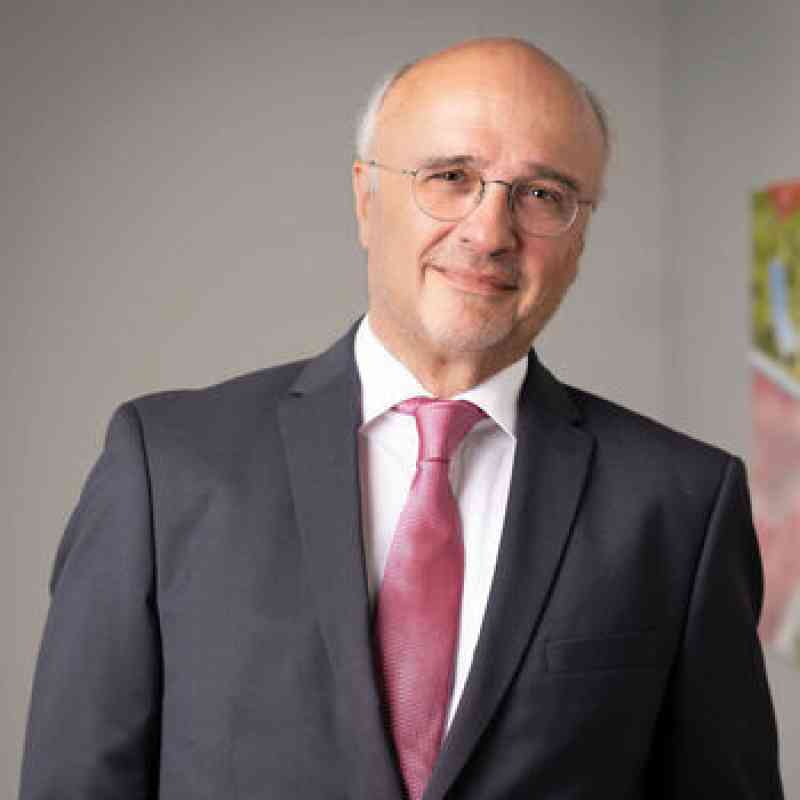Commission proposes Green Deal Industrial Plan
EU/Competition – Legal Update - Status: 16 March 2023

With the "Inflation Reduction Act of 2022" (IRA), the USA has launched a programme to boost its economy, especially in the field of green technologies. While China has announced investments in clean technologies amounting to more than USD 280bn and Japan wants to raise about EUR 140bn for a green transformation, the USA want to mobilise as much as USD 360bn. Not least, the IRA has thus triggered massive subsidy pressure and is calling the competitiveness of European green projects into question in the long term.
Against this background, the declared aim of the European Commission's Green Deal Industrial Plan (link) presented on 1 February 2023 is to improve the starting position for European “Green Transition” projects. The Industrial Plan is complementing the European Green Deal and the REPowerEU initiative and is intended to secure the EU's industrial leadership in the field of CO2‑neutral technologies and to support industry in the transition to climate neutrality. For this purpose, the aim is to strengthen competitiveness and promote investments. The EU heads of state expressed their support for the industrial plan in principle at their Summit on 9 February 2023 and intend to discuss it again at the next Summit at the end of March (link).
The Industrial Plan announces new legislative proposals, reforms and guidelines. It is based on four pillars that are intended to counter the international subsidy pressure from the USA, Japan and China. The four pillars include
- the simplification of the regulatory environment,
- faster access to funding,
- enhancing skills in the labour market,
- and open trade for resilient supply chains.
The Commission's ambitious goal is both to achieve a clean energy transition and to maintain the EU's competitiveness in this area. The focus is on financial support and simplification of regulations. For companies that can contribute to the transition to climate neutrality, there will be numerous new funding opportunities in the future. Companies that recognise and utilise such opportunities will have a distinctive competitive advantage.
However, it remains unclear which technologies are to be considered clean and therefore eligible for support. The Commission lists first and foremost "batteries, wind turbines, heat pumps, solar energy, electrolysers and carbon capture and storage". It remains to be seen which technologies will actually be included in the end, as the Commission points out in its plan that the exact scope is still to be determined. This could also involve an alignment with the technologies that are considered sustainable according to the EU taxonomy.
In more detail, the Commission plans the following measures within the framework of the four pillars:
A predictable, coherent and simplified regulatory environment
In order to simplify the currently very complex legal framework, the Commission proposes a variety of initiatives:
- A "Net Zero Industry Act" is to set sector-specific targets for production capacities for so-called "clean tech industries". In addition, the law is intended to accelerate the development of industries such as the production of wind turbines, heat pumps and solar cells by establishing faster approval procedures through fixed time limits and "one-stop-shops" for permit applications. It also aims to promote European strategic projects and support the development of standards helping the expansion of the technology. The Commission’s proposal was published on 16 March 2023 (link).
- At the same time, the electricity market design is to be reformed. The proposal, which was published on 14 March 2023, is intended to counter fluctuations in energy prices, ensure security of supply and give consumers the opportunity to benefit from the lower costs of renewable energies.
- In addition, there will be a new "Critical Raw Materials Act", which was already announced with the REPowerEU Communication in May 2022 and is intended to ensure security of supply. It is intended to facilitate the extraction, processing and recycling of critical raw materials needed for the production of important key technologies. This proposal was also published on 16 March 2023 (link).
- The Commission also plans to introduce a uniform EU energy label for heat pumps and, where appropriate, rules to speed up the provision of cross-border energy infrastructure.
Especially the simplification and streamlining up of the regulatory environment, i.e., of approval procedures, could turn out to be particularly effective means to foster green transition.
Speeding up access to finance
Arguably the most important of the four pillars concerns the promotion of investments in the production of clean technologies. The Member States are incentivized to use their own financial resources as well as remaining EU funds from the Building and Resilience Facility for this purpose. In particular, the Commission proposes the following measures:
- The Commission is planning new uses of existing EU funds for the production of “net zero” technologies. This concerns in particular REPowerEU, InvestEU and the Innovation Fund. The focus will concentrate on manufacturing capacities for CO2-neutral technologies. To facilitate access to REPowerEU funds, the Commission also adopted new guidelines for recovery and resilience plans on 1 February 2023 (link).
- The Commission also proposes to introduce a European Sovereignty Fund to provide a structural pan-European response to investment needs. A legislative proposal is expected in mid 2023.
- The central building block of the industrial plan concerns the extension of already existing relaxations of EU State Aid rules. The Temporary Crisis Framework, adopted on 23 March 2022 in response to the Ukraine war (we reported: link), is to be further transformed into a "Temporary Crisis and Transition Framework" to encourage investment and speed up the development of renewable energy and the decarbonisation of industry, and to allow investment in the production of the equipment needed for the transition to carbon neutrality. This new “Temporary Framework” was adopted by the Commission on 9 February 2023 (link). It applies until the end of 2025.
Aid for renewable energy and industrial decarbonisation is to be simplified further by extending the scope of exemptions to all renewable energies covered by RED II, raising the aid limit and simplifying the aid calculation, extending the deadlines for commissioning, and waiving tender requirements for less mature technologies (renewable hydrogen) under certain conditions. In addition, the subsidy rules for the production of strategic equipment are to be improved. For certain projects (such as in disadvantaged EU regions) for which third-country support is available, "matching" with third-country subsidies shall be possible.
- The announced revision of the General Block Exemption Regulation (GBER) has already been adopted in the meantime (link). The revised GBER is intended to give Member States more flexibility in providing support in areas that are crucial for a carbon-neutral economy. In particular, the notification thresholds for the promotion of green investments were increased.
- Finally, the assessment of "Important Projects of Common European Interest" (IPCEI) and the approval of funding for IPCEI is to be speeded up. For this purpose, the Commission and the Member States are to jointly agree on a code of conduct on the design of IPCEI. In addition, the participation of SMEs in IPCEIs shall be facilitated.
The streamlining of IPCEI processes in particular promises positive effects. The envisaged speeding up and simplification of access to (public) funding, on the other hand, still raises questions. The announced EU funding is based less on new funds than on the reallocation of already existing funds. It remains to be seen whether these funds actually will be available and sufficient for the Commission's far-reaching plans. It should be noted that the Commission has not specified any concrete figures in this regard.
The proposed relaxation of EU State Aid rules bears potential for conflict as well. Especially large and resourceful Member States like Germany and France have the financial abilities needed to grant subsidies in large amounts to domestic undertakings. This could put pressure on the economy in less financially strong Member States and lead to a distortion of competition. Thus, it seems even more important that the announced European Sovereignty Fund is provided with sufficient own resources. However, according to press reports, several Member States have already voiced objections against incurring the debt required for the Fund, among them Ireland, Austria and the Czech Republic.
Enhancing skills
The Commission estimates that 35%-40% of all jobs could be affected by the transition to the green economy. To support the green transition, retraining and skills upgrading will be carried out in strategic sectors. For this purpose, the Commission wants to add "net-zero industry academies" to the educational landscape. At the same time, the Commission plans to facilitate the access of third-country nationals to EU labour markets in priority sectors. In addition, it wants to examine to what extent skills-first immigration policy approaches which give top priority to actual skills and approaches in which only earned qualifications are taken into account may be combined.
Trade and resilient supply chains
The last pillar deals with global collaboration and trade promotion for the green transition, with due regard to fair trade principles. The Commission plans to create a "critical raw materials club", establish industry partnerships for clean technologies, and strengthen international cooperation through new free trade agreements. The new regulation on Foreign Subsidies Distorting the Internal Market (FSR) aims to combat foreign subsidies that distort competition in the clean technology market through unfair trade practices.
***
The Chatham Partners’ EU/COMP-team is specialized in complex issues in the areas of EU and German competition, State aid and public procurement law and has extensive practical experiences in these fields.
We would like to thank Sonja Maria Brücker for her valuable support in drafting this briefing.



